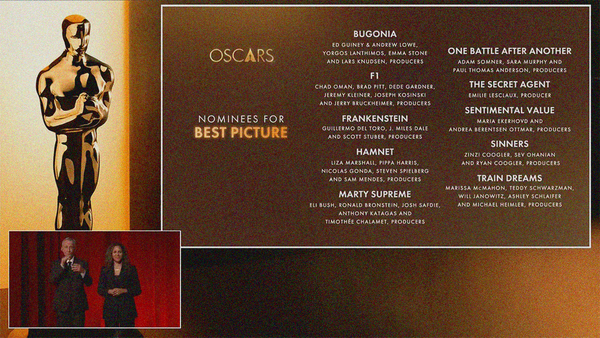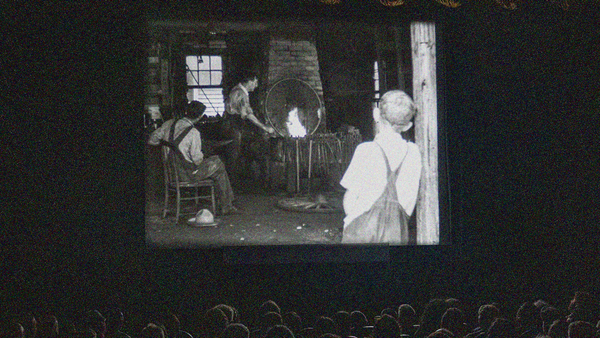TIFF 2025: Day Nine
Slow sales year
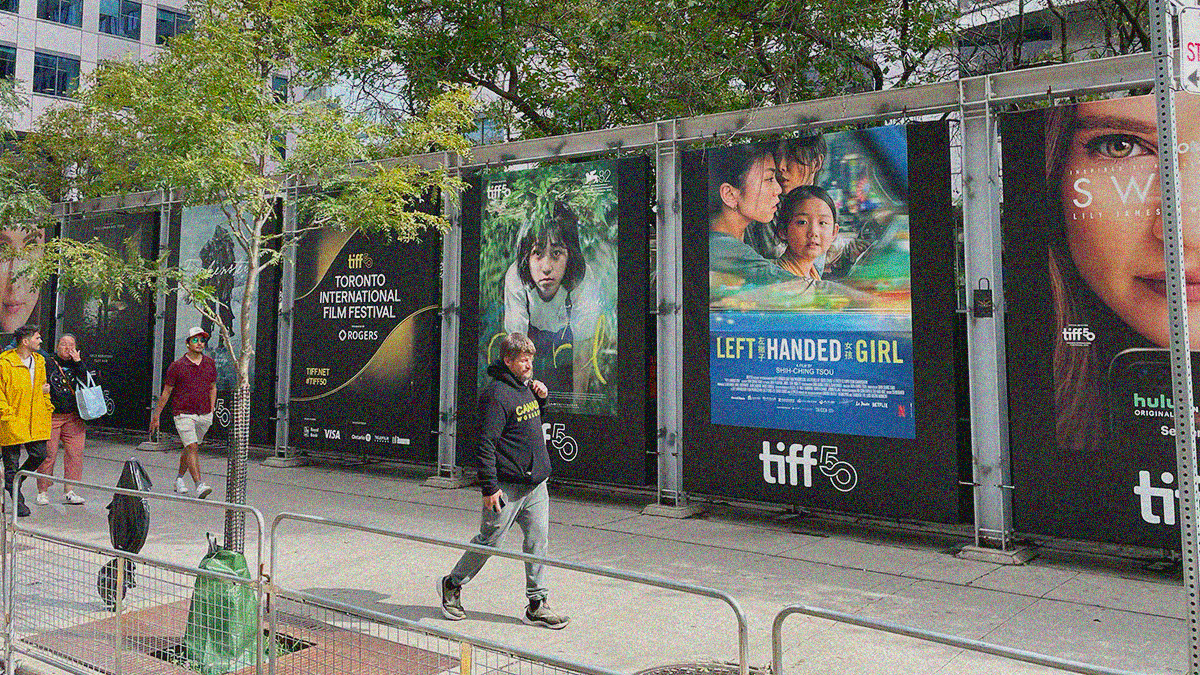
I could be wrong, but I haven't heard much about sales from this year's TIFF. Yes, many of the big titles already have distribution (and are coming out in the next few months), but what about all the others?
Palestine 36 pre-sold before its debut to Watermelon Pictures. Dead Man's Wire got picked up by Row K Entertainment ... but out of Venice rather than TIFF.
As of now, Christy going to Black Bear is it ... but not really since they financed it and just decided not to sell it to anyone else.
Maybe the bidding wars are just too fierce.
Today's schedule:
• Nika & Madison, d. Eva Thomas | Discovery | Canada | English
• The Son and the Sea, d. Stroma Cairns | Discovery | United Kingdom | English, British Sign Language

Nuns vs. The Vatican
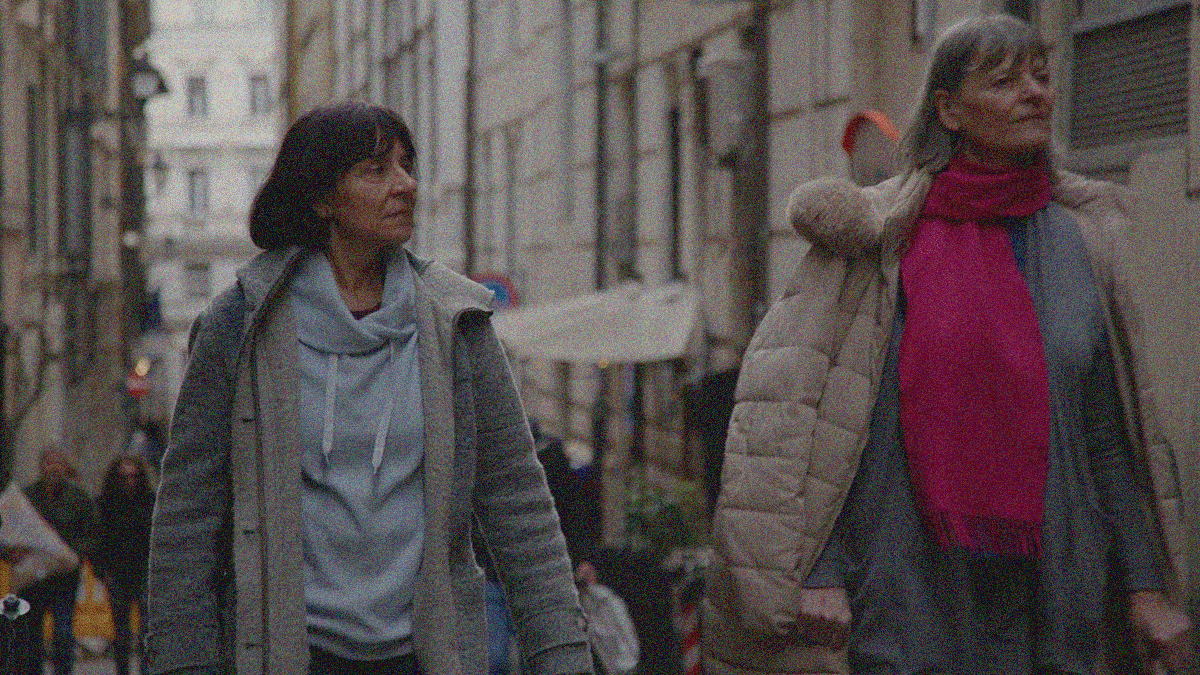
Centered around Gloria Branciani's accusations of abuse by Jesuit Father Marko Rupnik, Lorena Luciano's Nuns vs. The Vatican goes in-depth on the reality that the Catholic church has very intentionally focused on the altar boy victims of its priests' crimes to erase fifty percent of the true number. Because every expert on the topic interviewed admits half of those who come forward are women—mostly consecrated nuns. To the powers that be within the confines of the church, any such acts are merely considered sins to be dealt with internally.
How can you therefore trust anyone to act? One priest is captured on-camera explaining that he doesn't believe any of the talk surrounding Rupnik because he is both a "good man" and "friend." While that in and of itself is to be expected, however, what he says next explains everything we need to know on the topic. "Even if there was a moment of weakness, I must forgive him." Therein lies the rub. In an institution governed by the same men committing these heinous acts, they provide absolution to whomever and for whatever with zero oversight.
That is the power dynamic at play. Nuns are stripped of their autonomy the moment they put on the habit. They become conscripted to be obedient to God and therefore all his extensions into the real world. So, when a priest demands you remove your clothes or suggests a threesome as a means to reinforce the Holy Trinity, saying "No" becomes more than just rebuking the advances of a sick man. Due to the overlap of faith in Heaven and trust in its earthly stewards, that "No" suddenly becomes a rejection of God Himself.
For Gloria to come forward at all is a courageous act. To do so to condemn a man such as Rupnik—a right-hand to Pope John Paul II and renowned for his artistic talent with mosaics prominently displayed in Catholic institutions globally—provides the sort of inspiration that can truly spark a movement. Because Pope Francis finally talking about the prevalence of nun abuse due to media pressure from a Vatican publication isn't enough. Not when the lack of accountability forms an impenetrable wall around the facts.
There are some really great subjects throughout the film that mine down and expose the problems inherent to seeking justice in these cases. The big factor is that most nuns believe in the sanctity of the church and go to their superiors for help rather than the police. As such, when they ultimately realize those men would rather protect the institution than those under their care, the statute of limitations would have run out. The evidence would probably be gone too as rumor states Rupnik's boss burned all letters sent to him on the subject.
We also hear from an abused priest sent to one of the many "treatment centers" for abusive priests. He talks about the so-called therapy being more about providing activities than rehabilitation. Everyone was free to come and go as they pleased with weekend movie nights and regular excursions like canoeing to pass the time. Because that is the real purposes of these retreats: to keep sinful priests in a holding pattern until they can be reintegrated somewhere new. The most unsurprising statement made, however, was that he never witnessed remorse.
The details surrounding Rupnik are so wild that you can see why Gloria's case is so crucial to the SNAP (Survivors Network of those Abused by Priests) network of survivors. Not only was he a major figure, but every reprimand and seemingly final punishment washed off him like nothing. He's still a priest today despite excommunication and being stripped of his place amongst the Jesuits. As recently as 2023 his mosaics were still getting commissioned and installed in places of worship. It's top-down authoritarian loyalty at its finest.
Yet Gloria's strength never wavers. Bolstered by former nuns from the Loyola site of her abuse (Mirjam Kovač and Klara), she's allowed Federica Tourn to tell her story and use it to find others willing to come forward. The question remains whether anything substantial will be done, but, as is admitted during the film, Pope Francis putting it on the record is a positive step forward even if it's a bare minimum result. But that's why stories such as these are so crucial to the cause. Change is only possible if someone is brave enough to light the match.
7/10
Under the Same Sun
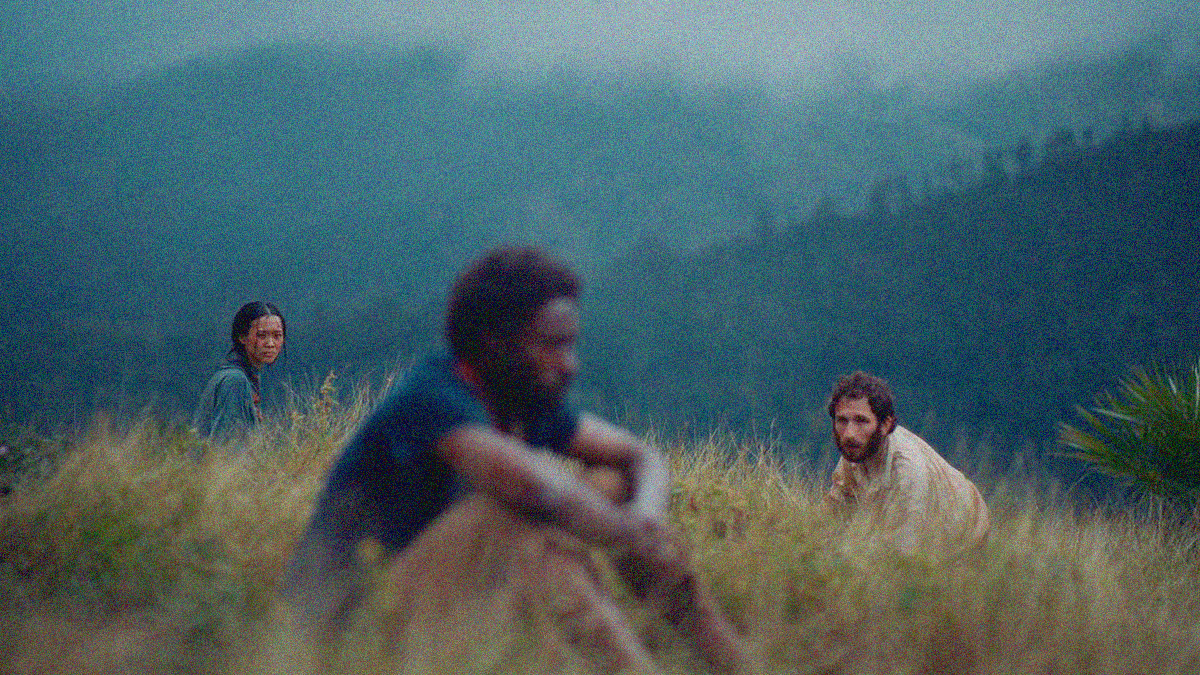
This was never the plan. Lázaro (David Castillo) was supposed to arrive on the island of Hispaniola (what is today the nation of Haiti on the east side and the Dominican Republic on the west) to meet his father. He's the man who set all this up: a house in the jungle, non-native mulberry bushes planted across the river, a deal in place with the archdiocese, and a Chinese woman (Valentina Shen Wu) proficient in the art of extracting silk from silkworms. But now he's dead as a result of a robbery and Lázaro is left to try and pick up the pieces.
Ulises Porra's Under the Same Sun doesn't begin with him, however. It instead starts with Baptiste (Jean Jean). We meet his Haitian military deserter injured and roaming the island before finding the corpse of a bespectacled man. He reaches for the glasses and puts them on to open a whole new world. Baptiste's vision is the main reason he abandoned his post with the French—fighting a war when you cannot see was a scarier prospect than a court-martial. Where does he ultimately end up? Squatting inside Lázaro's father's home.
What follows is a uniquely colorblind partnership wherein this trio band together with some local villagers to get their silk factory up and running. It's a melting pot of cultures wherein Lázaro ultimately proves the weakest link despite the endeavor being his to get off the ground. Mei's expertise is the linchpin, but Baptiste becomes an invaluable figure of strength with the ability to catch fish, protect them from French scouts, and build the infrastructure necessary to fulfill the church's order. Without Lázaro's connection to the money, he's expendable.
He's also the one who's currently afraid as a result. Mei is bold and confident in every move she makes and Baptiste's glasses have rejuvenated his sense of self-worth and agency. So much so that Lázaro asks Mei why they let him sleep on the bed despite being Black only for her to practically dare him to say it. He of course does nothing of the sort. In fact, all Baptiste must do is raise his voice to make Lázaro fall in line. He doesn't do so out of aggression. Baptiste respects his de facto boss, but he's no longer willing to sacrifice his autonomy.
This is 1819, however, so at a certain point—if Lázaro is successful in making the archdiocese satisfy the contract made with his father—there's a good chance this dynamic will shift. It's the evil inherent to colonialism. No matter what someone you deem inferior does to render himself invaluable, they will still be seen as a pawn to be wielded at your whim. We hope this won't be the case considering Lázaro would be nothing without Baptiste after his original crew abandoned him upon landing (due to his need to retain Mei). These three should be equals.
When Porra further complicates the relationship with romance, though, the odds Lázaro's return signals betrayal grow tenfold. I wish I could say this is a product of the era, but the same mindset has been running rampant today too. Look no further than ICE raids deporting Central Americans who have long been contributing members to American society (the one thing republicans demand of immigrants) simply because of their country of origin. Baptiste's humanity and actions become an afterthought to propagandized generalizations.
Strength in numbers only works in some minds if those numbers consist of the same race, religion, language, etc. Pull Lázaro out of his circumstances and he might be a legitimate voice for changing that considering his experiences with Mei and Baptiste, but his tenuous hold on control and identity ensures jealousy and greed drive him to act against his own best interests. To start down that path is to risk an inevitable epiphany coming too late. Because Lázaro is a good man. He always eventually sees reality. But timing is crucial when it's life-or-death.
Under the Same Sun depicts these realities with dense layers of emotion and drama showcasing how easy it is for men to hide behind rules so they mustn't ever listen to their hearts. Castillo epitomizes Lázaro's desperation for approval. Shen Wu never wavers in the knowledge that Mei's the smartest person in the room. And Jean expertly toes the line between ferocity and vulnerability. Combine these performances with impeccable production design and lush cinematography and it's impossible not to fully invest in their tragically resonant adventure.
8/10
Whistle

Not only is there a competition for whistlers to be crowned "world champion," but there are actually many such events around the globe. Masters of Musical Whistling is but one that takes place in Hollywood, California under the stewardship of a former champion Carole Anne Kaufman. She pays for it out of her own pocket and considers it her legacy because the first thirty-five years of these tournaments never had one woman victor. This is therefore her way to pay her love for the art forward and build a community of likeminded souls.
Christopher Nelius' documentary Whistle takes us behind the scenes of Carole's work producing the show and the contestants preparing their routines. It's unsurprisingly a kooky bunch of winners (Lauren Elder), perpetual runners-up (Yuki Takeda), professionals (Molly Lewis), and newcomers to the scene (Ayna Ziordia and Jay Winston). We learn about the origins of their passion, how they incorporate whistling into their lives, and the anxieties they face transitioning a usually solitary act into a performance for judges and audiences alike.
Credit all involved for their vulnerability because it speaks to the seriousness of this competition as well as their shared humanity. That goes for performers worrying about their selected classical piece being repeated by three other musicians, a volunteer dealing with substance abuse issues, and Carole herself needing to be reminded by her staff to take a breath once her stress manifests as unnecessary anger towards those helping to make her event a success. There's a lot of ego on-screen, but humility is never far behind.
The whole carries a wonderfully entertaining vibe as a result—not only because the music and talent is so good, but also because the performers truly become each other's cheerleaders. There's a great scene where Davitt Felder knows he's bombed and yet he still holds his head high as Molly consoles him. He understands the moment and knows he has two more chances to redeem himself and show his peers he has what it takes. Even two of the best (Yuki and Ayna) are perfectionist constantly reminding each other to cut themselves some slack.
Nelius and his co-writers find some really compelling threads to follow beyond Carole's emotionally draining efforts too. Molly adjusting to a new forum wherein technical prowess demands she not use reverb despite it being a huge tool in her musical career. Yuki still chasing his first victory only to see yet another newcomer in Ayna threaten to hold him at bay yet again. And Jay simply going out there to see if he can hang with the best. This is a former Broadway dreamer turned teacher finally giving himself the chance to leave everything on a stage.
That camaraderie shines because most of the participants seek the same sense of inclusion. Whistling at this level isn't common, so talking shop and showcasing their unique talents (Yuki panting to speed up tempo, Ayna's tongue work creating vibrato, and Molly's ability to whistle as clearly and strongly while breathing in as out) proves a joy for all. And it becomes a joy for us to become a fly on the wall during their insanely good performances. It's honestly also just nice to watch nerds find the freedom to unapologetically be themselves.
7/10

Pulled from the archives at cinematicfbombs.com.
Parkland screened on September 6, 2013 at TIFF.



